Information, Advice & Support
Mental Health & WELLBEING rESOURCES
Please find below some useful Mental Health Awareness Resources.
Mental Health Support available in School
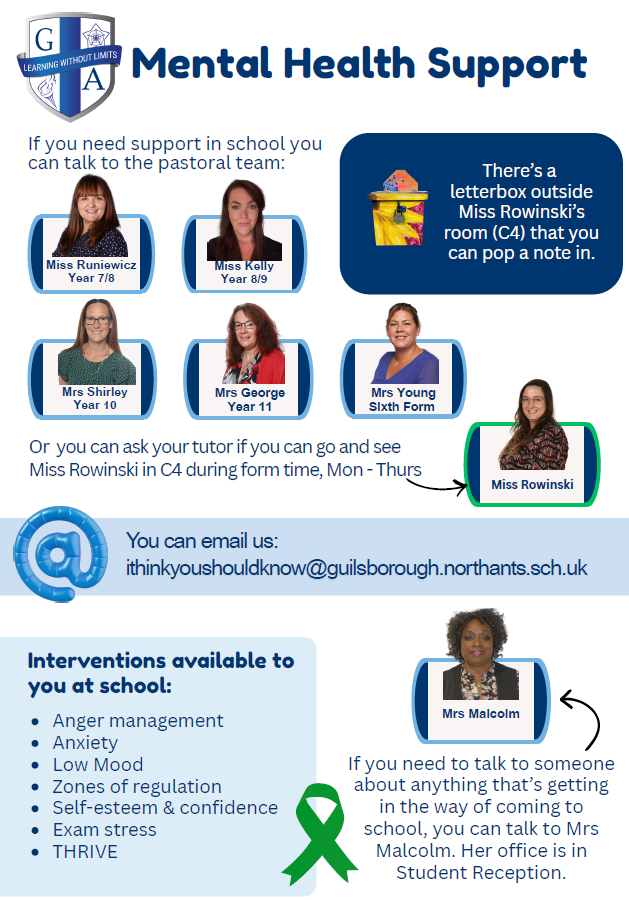
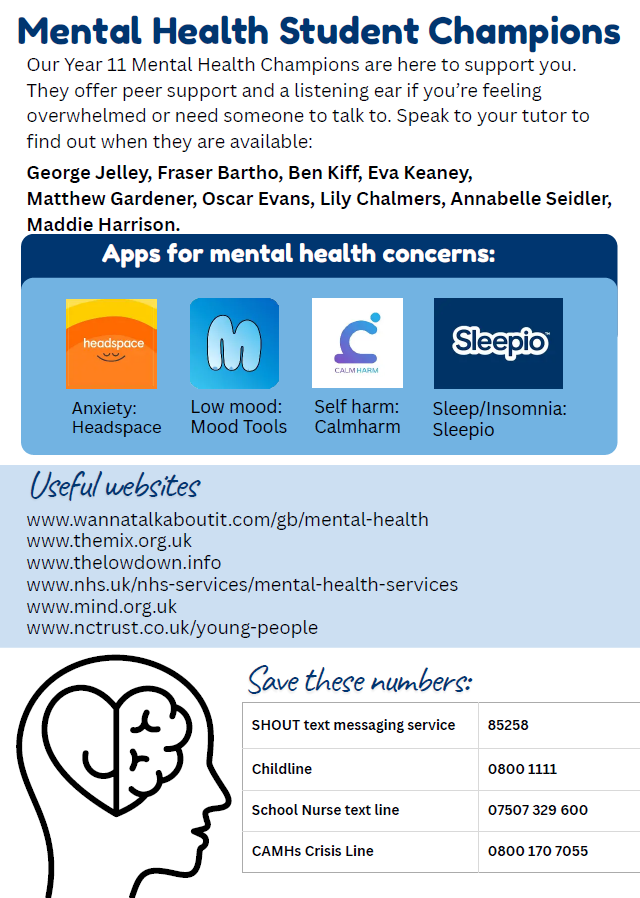
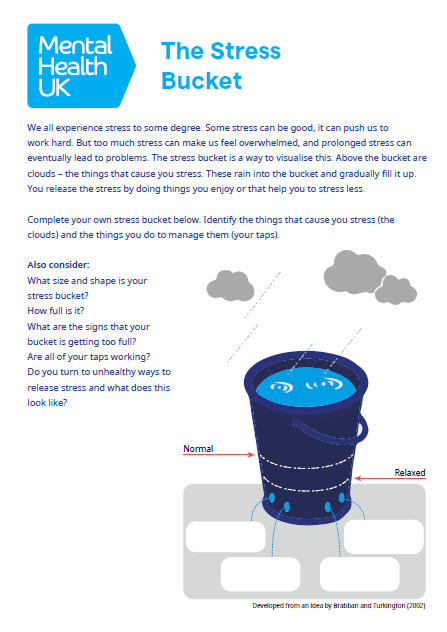
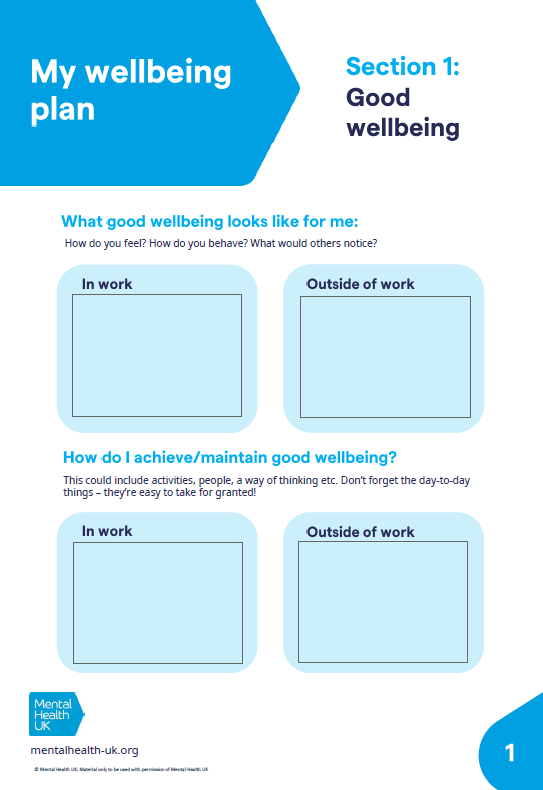
Have concerns?
Email us on: ithinkyoushouldknow@guilsborough.northants.sch.uk
The National College
The National College have packaged up a few free guides to support you over the festive season. Download these resources on 'Mental Heath & Wellbeing' to help you guide children and young people through what can be a challenging time of year for some.

Top Tips for Supporting Children to Build Emotional Resilience
This free guide provides expert advice on how to nurture self-esteem in children and young people and help them to effectively process difficult feelings.
Download here.
What Parents Need to Know about Worry & Anxiety
This free guide explores the impacts of worry and anxiety on children, and offers advice on how to support young people struggling with these experiences.
Download here.
Top Tips on Supporting Children with Self-Regulation
This free information guide offers a collection of useful tips for helping children learn to manage their emotions.
Download here.
The Lowdown
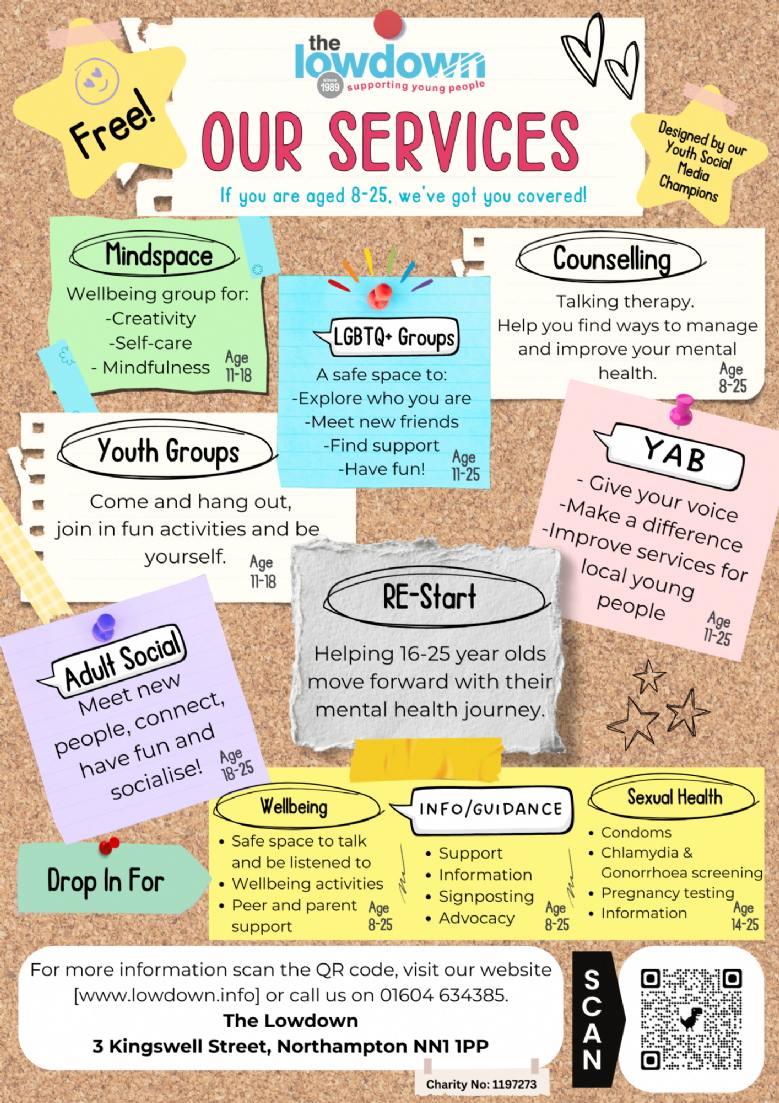
Please find below County wide Mental Health and Wellbeing information, guidance & drop in leaflets:
PHYSICAL HEALTH RESOURCES
Eating Well (Easy Read)
Top tips for eating well provided by West Northamptonshire Council.

Read the article here.
Being Active (Easy Read)
Top tips for being active provided by West Northamptonshire Council.

Read the article here.
Healthy Weight (Easy Read)
Top tips for maintaining a healthy weight provided by West Northamptonshire Council.

Read the article here.
Dental Health (Easy Read)
Top tips for maintaining dental health provided by West Northamptonshire Council.

Read the article here.
Sexual Health (Easy Read)
Top tips for maintaining sexual health provided by West Northamptonshire Council.

Read the article here.
What is Disordered Eating?
Disordered eating refers to a collection of symptoms or behaviours around eating that are abnormal but do not meet the criteria for an eating disorder to be diagnosed. Disordered eating occurs when an individual moves away from eating for nourishment and following cues from the body, and towards eating to meet goals or follow rules.
The following links also provide resources and information which was circulated for Eating Disorder Awareness Week.
Eating Disorders Awareness Week 2025 | Action Mental Health
Eating Disorders Awareness Week 2025
What To Do If You're Experiencing Eating Problems | YoungMinds
Be Body Positive - Support for Young People, Parents, Carers & Professionals
Eating Disorder Awareness Posters
In the UK, it's estimated that around 1.25 million people have an eating disorder. This statistic shows that, although eating disorders are complex mental illnesses, they can affect anyone of any age, ethnicity, gender or background. Please refer to the following awareness posters provided by Beat.
Support for families during the holidays
Northamptonshire Children's Trust
Welcome to the summer bumper edition of Stay Connected. There are lots of activities happening and we don't want our families to miss out. These documents will be updated regularly throughout the summer. We have reached our limit for the amount of information we can include so there are more August activities which will be added in a couple of weeks time.
Remember that you can navigate through the document by using the square at the bottom righthand side of the page and you can download a Word or PDF version by clicking on the three dots in the top right corner and then choosing the Export option.
We hope our families have lots of fun attending some of the brilliant sessions that are planned and that you get a chance to rest and relax at some point too.
West Northamptonshire - stay connected july 2025
North Northamptonshire - stay connected july 2025
Here is the Professionals newsletter with training, funding and partner updates:
sleep
Sleep is important for teenagers at all times, but especially during the years of rapid physical, mental, and emotional growth. Sleep helps teenagers' bodies repair themselves, and it can improve their concentration, memory, and analytical thinking.
Why is sleep important for teenagers?
-
Physical growth: Sleep helps teenagers grow and develop normally.
-
Mental health: Sleep helps prevent mood problems and depression.
-
Academic performance: Sleep helps teenagers pay attention, learn, and remember information.
-
Athletic performance: Sleep helps teenagers recover from injuries and perform better in sports.
-
Skin and hair: Sleep helps teenagers have healthier skin and hair.
How much sleep do teenagers need?
-
On average, teenagers need 9–10 hours of sleep per night.
-
However, the normal range is between 7–11 hours.
-
Some teenagers may need a little more or less sleep each night.
How can teenagers get enough sleep?
-
Parents can model good sleep habits, such as sticking to a regular sleep schedule and cutting back on caffeine in the evening.
-
Teenagers can take a 15–20-minute nap in the early afternoon.
- Paediatricians can educate teenagers on how much sleep they need and screen them for sleep disorders.
Resources - Some useful resources can be downloaded below:
Parent/Carer
Body Positivity, Self-Compassion and Self-Awareness
Children can struggle with their body image and self-esteem just like adults. Helping your child find positive self-worth early in life sets them up well and helps them develop healthy relationships. This workbook has a range of activities for you to enjoy together that will help your child to become more self-aware and more self-compassionate.
Support for adults;
https://family-action.org.uk/services/supportive-steps/
Here is a link for parents to get free resources.
https://www.mhm.org.uk/Pages/FAQs/Category/helpful-resources
Self harm
Where to get help for self-harm
It's important to know that support is available for anyone who self-harms or thinks about self-harm, as well as their friends and family.
It's best to speak to a GP about self-harm, but you may also find it helpful to speak to a free listening service or support organisation.
https://www.nhs.uk/mental-health/feelings-symptoms-behaviours/behaviours/self-harm/getting-help/
Signposting
Mind
Even though 1 in 4 people have mental health problems, most of us don’t get the help we need. This has to change. Mind fight for mental health. For support, for respect, for you.
They change minds across England and Wales by making mental health an everyday priority. By standing up to the injustices – in healthcare, in work, in law – which make life harder for those of us with mental health problems.
They support minds – by offering help whenever you might need it through our information, advice and local services.
And we connect minds. Bringing together an unstoppable network of individuals and communities – people who care about mental health to make a difference.

Find your nearest Mind by clicking here.
The Lowdown
The Lowdown is a Mental Health Charity, providing free and confidential support services for 11- 25 year olds in Northamptonshire. Their services include Counselling, Information, Advice & Advocacy, Wellbeing, LGBTQ+, Youth Groups and Sexual Health.
“The Lowdown believe no young person should ever experience mental health issues alone.”

Explore the Lowdown and their range of services here.
SUPPORT AGENCIES & CHARITIES
Risk of Self-harming. 6 week intervention https://www.servicesix.co.uk/make-a-referral-directly-to-service-six/
24/7 support texting service - https://giveusashout.org/
Frank Bruno foundation referral form - https://www.thefrankbrunofoundation.co.uk/referral-form/
The Lowdown counselling referral form - https://thelowdown.info/counselling-referrals/
Bereavement support - https://www.cruse.org.uk/get-support/
SEND Support Service - https://www.northnorthants.gov.uk/search?type=search&searchTerm=Make%20a%20referral%20to%20the%20SEND%20Support%20Service
School nurse - 0800 170 7055 Option 4 - https://www.nhft.nhs.uk/0-19/
Parents helpline and advice https://www.youngminds.org.uk/parent/parents-helpline/
CHATHEALTH, for secondary school children - text school nurse on 07507 329 600 - https://chathealth.nhs.uk/
Sleeping issues and support - https://teensleephub.org.uk/schools/
ACE referral - https://northantspfcc.org.uk/our-work/the-opfcc-youth-service/
JOGO behaviour support - https://www.jogobehavioursupport.com/referral-form
En-fold - Autism support - https://www.enfold.org.uk/contact
Post adoption service - https://nctrust.co.uk/adoption/post-adoption-support/
CAMHS Connect Consultation Line: 0800 170 7055 - For advice, support and guidance on emotional wellbeing and mental health
Support for children who have witnessed domestic abuse, trauma on the roads and restorative justice services -https://voicenorthants.org/

